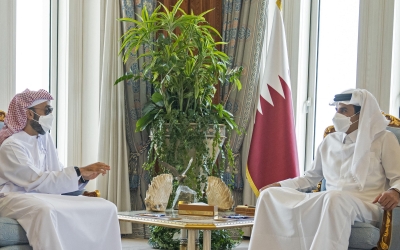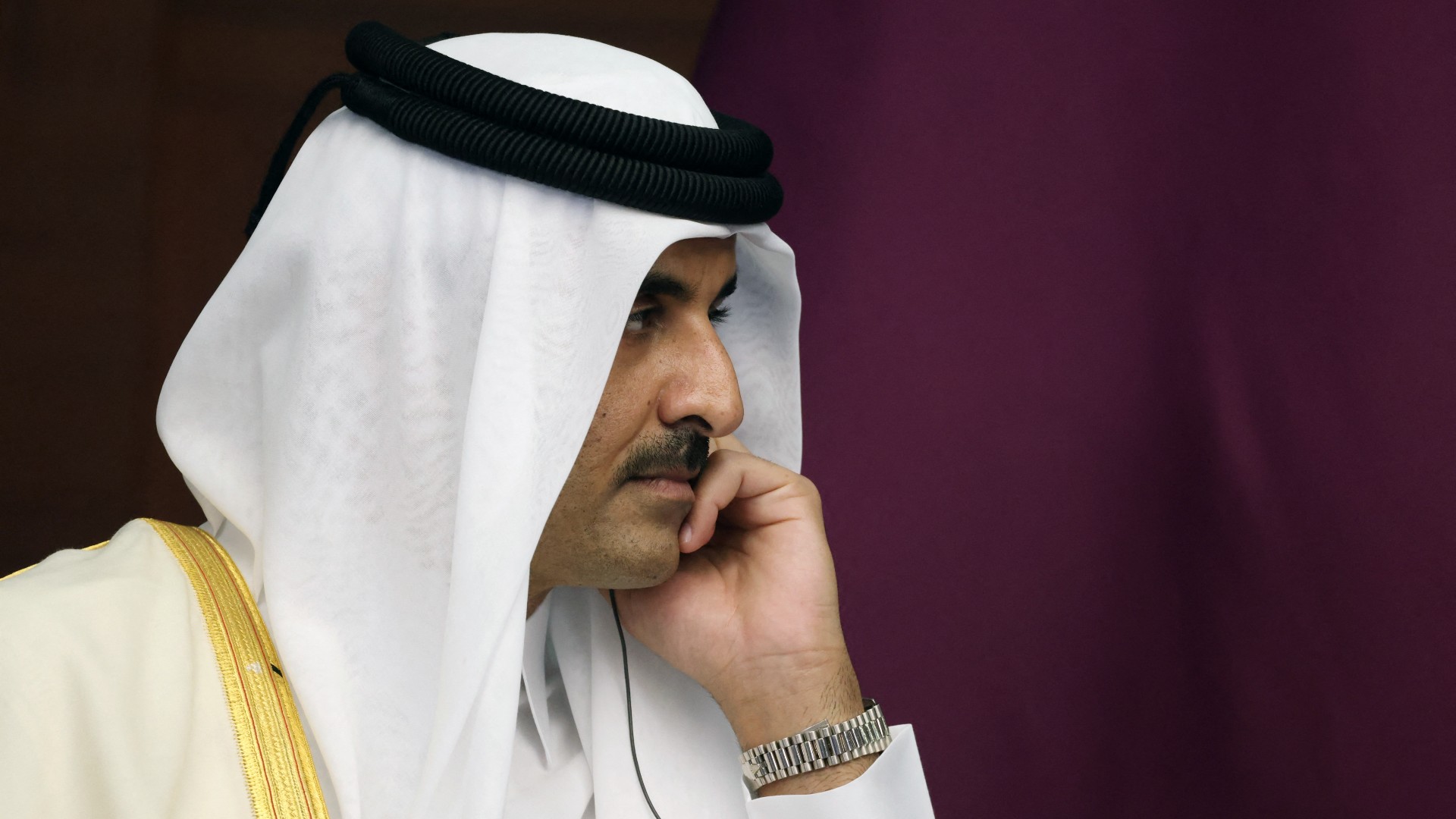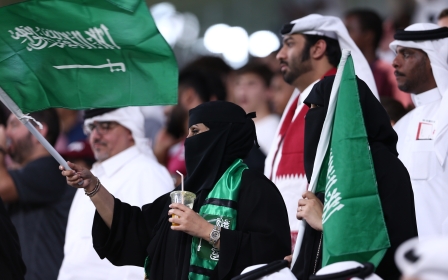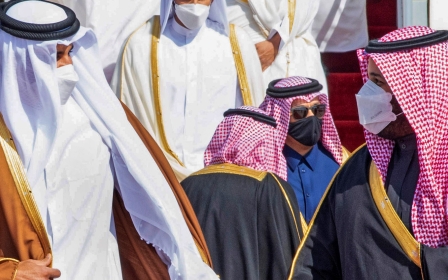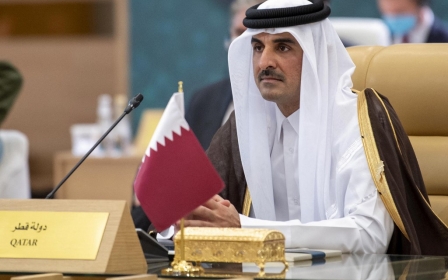Qatar's decade of crisis and triumph
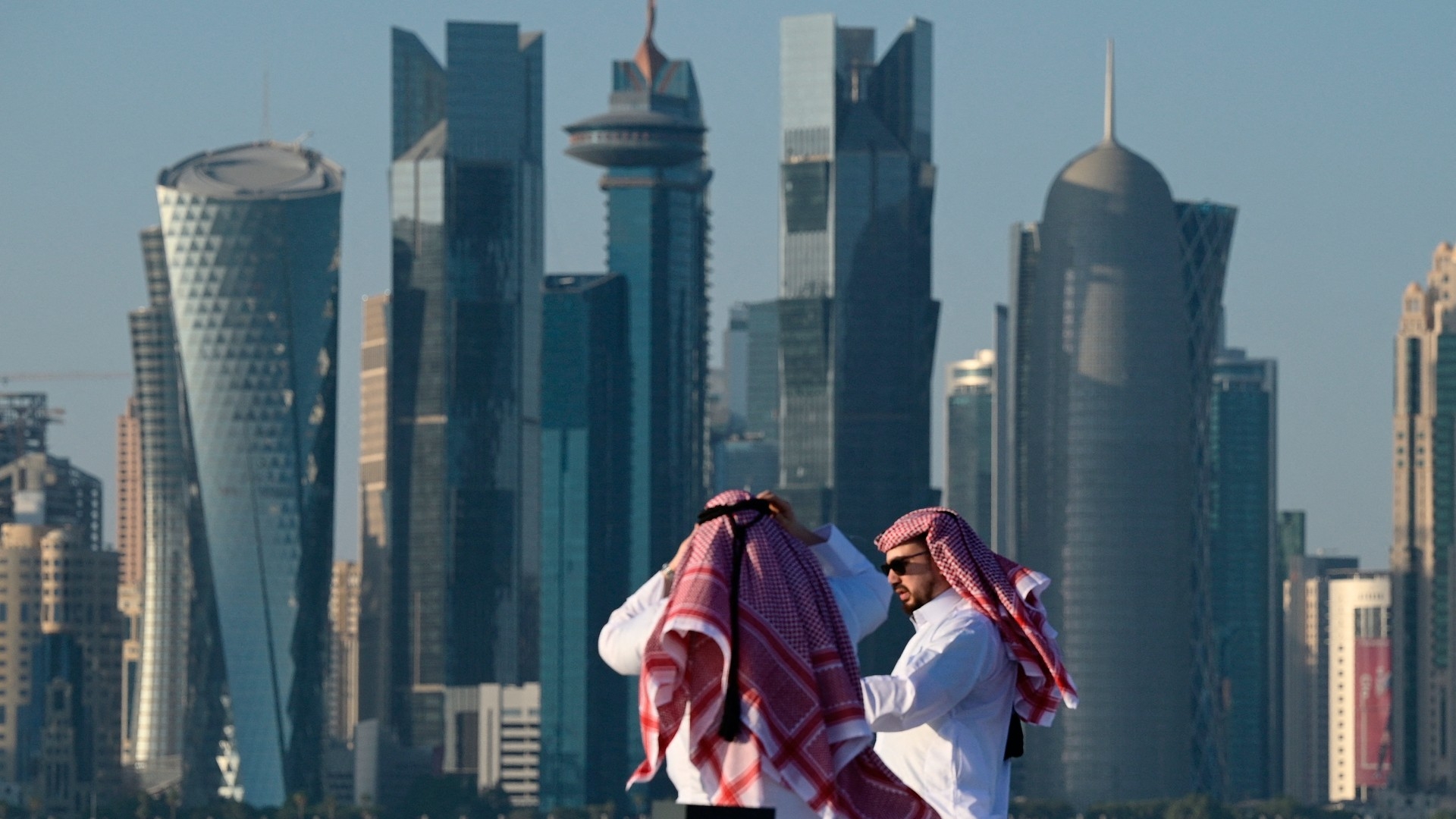
When Qatar’s Emir Sheikh Hamad bin Khalifa Al Thani announced he would hand over power to his son Sheikh Tamim on 24 June 2013, few thought that his 33-year-old son – at the time one of the youngest heads of state – would be able to fill his father's larger-than-life shoes.
After all, it was Hamad bin Khalifa (HBK) who transformed the small emirate from a quiet backwater in the Gulf to a regional powerhouse. A decade on, Prince Tamim is emerging as among the most seasoned leaders in the next generation of Gulf royals.
The Qatari emir assumed power at a crossroads of regional history. Following the Arab Spring, Qatar had deviated from its policy of neutrality and mediation to one of regional activism.
An undecided US and Europe left Qatar in the rain. It had provided support to opposition forces in Libya and Syria while backing the Muslim Brotherhood in Egypt. This two year – anachronistic adventure, from Qatar's point of view, was about to implode as regional powers first and foremost the United Arab Emirates (UAE), sensed the opportunity to fill a void left by a regionally disengaging West.
The UAE-led well-strategised counterrevolution that started with the coup in Egypt in June 2013, just days after Tamim took over from his father, was to shape his own reign as much as the recent history of the Gulf.
New MEE newsletter: Jerusalem Dispatch
Sign up to get the latest insights and analysis on Israel-Palestine, alongside Turkey Unpacked and other MEE newsletters
The Arab winter
The narrative that the father emir was still pulling the strings behind his son's throne remained a popular talking point among Qatar's neighbours for years.
Far from it, Qatar's new ruler set his own tone early on. Less extroverted and less risk prone than his father, the son would have to steer the country through the rough waters of an impending Arab Winter.
The stalemate in Syria and Libya as well as the military coup in Egypt, left Qatar's unconditional support to dissidents and anti-authoritarian forces exposed.
With a young, inexperienced leader at the helm in Doha trying to consolidate his power, the quartet of the UAE, Saudi Arabia, Bahrain and Egypt sensed their chance to coerce the young emir into concessions – on issues they had previously failed to do so with the father emir.
The diplomatic embargo they imposed on Qatar in March 2014 was meant to put Qatar in its 'natural place' as a small state in the Gulf that had traditionally bandwagoned along Saudi Arabia.
The withdrawal of quartet ambassadors provided the backdrop against which the young ruler reassessed the feasibility of Qatar's position during the Arab Spring. The oil price drop in 2014 made it more imperative for the new emir to prioritise the home front over potentially risky overseas commitments.
Realism and pragmatism
Qatar's sunk costs did not constitute enough of a reason for Prince Tamim to keep going. Realism and pragmatism suggested it was time to dial down its unilateral support for the region’s revolutionaries.
Instead, during the past decade, Qatar was to go back to the future to prioritise multilateral solutions harnessing the potential of its role as a neutral go-between.
It was exactly this role of Qatar offering neutral meeting ground to the likes of Iran and the Taliban among many others, that provided the pretext for the quartet of 2014 to reconvene in 2017 to target Qatar.
This time, a diplomatic embargo was reinforced by an economic blockade that was to last three and a half years. Tamim was elevated to a crisis leader trying to manage what became an extremely emotional and often personal war over narratives fueled by Qatar's neighbours.
While regional Gulf leaders threw wild allegations around, Qatar's young ruler decided to fairly quietly sit the blockade out. At least in public he did not seem to hold any grudges leaving room for reconciliation.
As the emir said in a 2017 Charlie Rose interview: "If they gonna walk one meter toward me, I'm willing to walk 10,000 miles towards them." While this attitude gained him much favour in the global court of public opinion, in the end Tamim played a lot more hardball than his statement suggests.
He did not concede and had the neighbours take the first steps to get themselves out of the mess of their own making.
During the past decade, Qatar's internal governance has become a lot more integrated – a break from previous eras when the right hand often did not know what the left hand was doing.
The Qatari emir proved to be a lot more hands-on than his father, surrounding himself with technocrats under his direct control. More centralised governance granted the emir more direct oversight.
A balancing act
Ten years on, Qatar is enjoying its post-World Cup high and with unprecedented gas wealth, Prince Tamim enters the second decade of his reign with a blank canvas to cultivate new opportunities from a position of strength.
Washington’s failing Israel-first policy might provide opportunities for Qatar and its ruler as the wind is turning firmly against normalising with an openly racist Israeli government
Having learned the lessons from overexposure and overstretch during the Arab Spring during the past decade, Qatar has emerged as a more reliable partner not just to the West, but also to the East and most importantly to the Global South.
However, Qatar is not operating in a vacuum. On the contrary, there are range of competitors who do not only challenge Qatar’s policies but also Tamim’s personal belief in win-win opportunities. While the post-Al Ula summit climate has delivered some necessary respite, the Machiavellian Mohammad bin Zayed is unlikely going to leave Qatar’s growing influence unopposed.
And while Egypt’s Sisi discovered his pragmatism with Tamim and Qatar in its newfound role as a beggar state, this is unlikely going to develop into a warm friendship. Intensifying Emirati-Saudi competition on the other hand, might prompt Saudi’s Mohammad bin Salman to seek a new ally in Qatar’s emir – for the time being.
Meanwhile, Turkey’s Erdogan – one of Tamim’s closest personal-political relationships in the region – has developed into an elderly stateman who on more than one occasion has abandoned mutual values and interests for the sake of staying in power.
Geo-strategically speaking, the emir’s decision post-blockade to put most of Qatar’s eggs in the American basket, defies the trend of where other Gulf leaders see their future: in the East. Hard choices will have to be eventually made as China is emerging as an ever-greater player in the region amid a persistent lack of US leadership.
Washington’s failing Israel-first policy, however, might provide opportunities for Qatar and its ruler as the wind is turning firmly against normalising with an openly racist Israeli government. The Qatari emir's personal unconditional support for the Palestinians grants him a regional leadership role – at least in the eyes of the Arab public.
Most of it will remain a balancing act. While the blockade has opened up a new political space in Qatar, civil-societal participation will eventually demand more of a political outlet – the Shura Council elections is a step in the right direction.
Overseas engagements and investments, thereby, will have to increasingly pass the test of domestic public opinion as well as satisfy the suspicious eyes of Qatar’s neighbours. Because in a region as volatile as the Gulf, Tamim – an emir formed by crises – will have to continue to find middle ground to maintain domestic and regional stability.
The views expressed in this article belong to the author and do not necessarily reflect the editorial policy of Middle East Eye.
Middle East Eye delivers independent and unrivalled coverage and analysis of the Middle East, North Africa and beyond. To learn more about republishing this content and the associated fees, please fill out this form. More about MEE can be found here.



